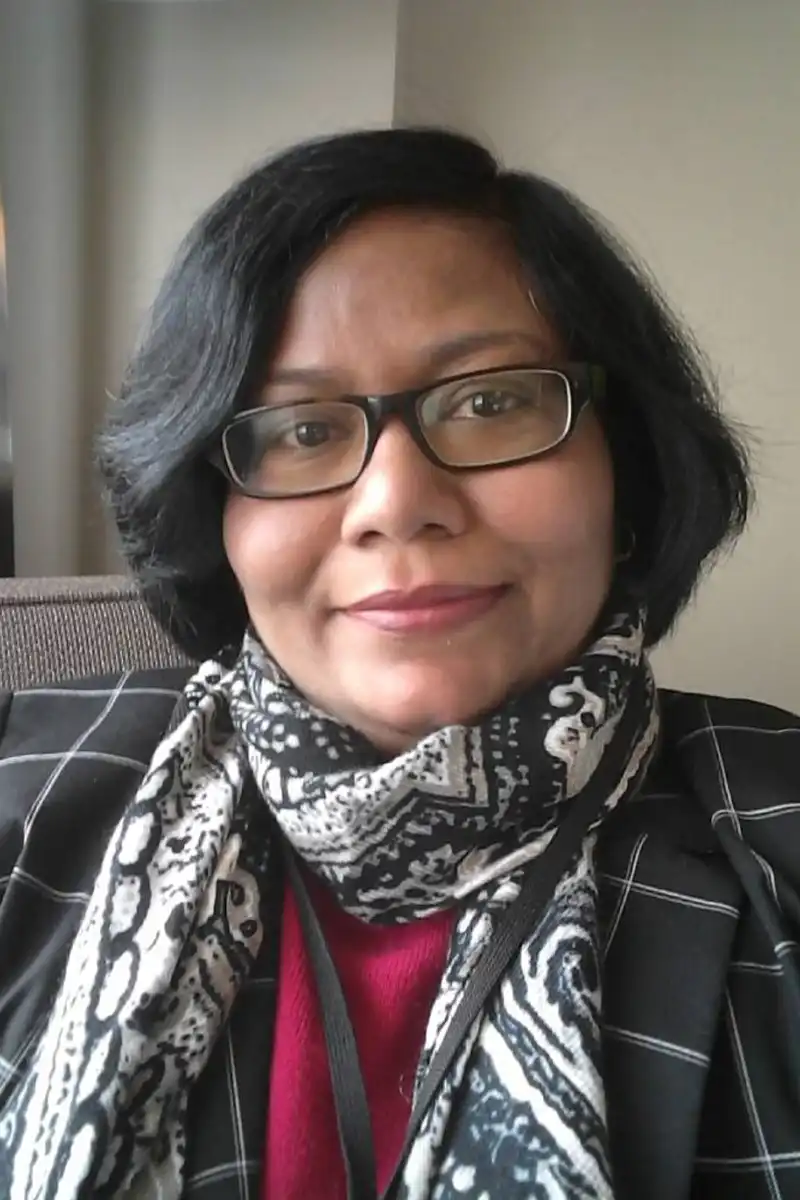Sharma, Madhuri

Specialties
Phone
Office
Madhuri Sharma
Professor | Human Geography and Sustainability
Domestic focus: My research interests include understanding patterns and processes of racial/ethnic residential intermixing/segregation, poverty, income inequality and socio-economic disparity within and among various population groups (race/ethnicity, gender, immigrant groups) largely within the urban context of USA, India, and the developing world. Within USA, a large part of my research so far has explored examining the influence of contemporary housing market elements on residential choice(s) and how might the market-makers impact diversity and segregation/intermixing at inter-urban and intra-urban spaces. I have conducted research on mid-sized metropolises of the Midwest (USA) as well as in the American Southeast, using a mix of quantitative, qualitative, and mixed methods approaches. In exploring the patterns and processes of intermixing/segregation, diversity and economic opportunities, my use of mixed methods approaches has utilized publicly available data sources (e.g., the U.S Census, Economic Census, BLS, NHGIS, and the like). My use of a variety of quantitative/statistical methods, along with qualitative tools such as in-depth/open-ended/semi-structured interviews, participant observations, partial ethnography, neighborhood reconnaissance, household/individual surveys, participatory urban/rural appraisal techniques, community resource/GIS mapping, etc. have helped me add a holistic understanding and nuanced perspectives to the dynamics of socio-economic and political processes that create spaces of difference. Some of my most recent work has focused on expanding my measurement indices to understand the impacts of poverty and income divide between the richest and the poorest segments in our larger society, and how might the lessons learned help create a more egalitarian society. In approaching the issues of socio-economic and demographic disparity across space — domestic or international, I am particularly interested in understanding the complex ways in which race/ethnicity, class, gender, social & human capital, spatial accessibility, policies, and group-based culture interact with each other in affecting spatialized outcomes of various population groups.
I also collaborate with my graduate (Doctoral/Master) students on a variety of social, economic and population geography topics that address research questions focused on American urban areas and/or international countries. Some of my recent works have examined varying degrees of rent burden and their determinants in US metropolises, gendered dimensions of paid and unpaid activities in Bangladesh, climate change mitigation strategies by humans in Kuwait and the gendered dimensions encompassed within, mental health vulnerabilities and their socio-spatial determinants, emotional geographies of Black women, and the like. In the past, I have collaborated with graduate students on a variety of topics such as low-income housing, role of crowdsourcing and crowdfunding in placemaking, residential segregation and gentrification efforts within intra-urban spaces, etc.
International focus: I have explored the role of informal economy in shaping the residential (and commercial) spaces in urban areas of India. This includes examining how the labor engaged in informal economy make decisions concerning domestic and cross-border migrations and how those decisions create distinct spaces of poverty, slums, and urban villages in intra-urban spaces. My current collaborative research in India focuses on livability, sustainability, and quality of life in India’s expanding formal and informal urban settlements. In general, I am keen on collaborating with international researchers and students on a variety of research questions focusing on economic and social disparity across population groups, gendered dimensions to socio-economic and health inequalities, domestic and cross-border (legal/illegal) migrations, and the like. I am interested in graduate students who have research interests on similar and related socio-economic issues in the developing world.
Students’ mentoring: I am particularly interested in recruiting graduate students whose research focus aligns with my specific areas of research – largely focusing on issues of economic and social inequalities at the intersection of race/ethnicity, gender, and class in the developed and developing world. Having decent level of writing skills, motivation, and enthusiasm to work, and willingness to engage in empirical data-based analytical research skills with skills in statistics, GIS, and/or qualitative mixed methods are crucial for success in our Masters/Ph.D. program.
Courses taught by me:
- Geog 101: World Regions (Undergraduates only, once in 2-3 years)
- Geog 340: Economic Geography-Core Concepts (Undergraduates only, once a year)
- Geog 375: Society/Spaces of South Asia (Undergraduates only, once every 2-3 semesters)
- Geog 442: Urban Spaces/Urban Society (Undergraduates and Graduates, once a year)
- Geog 541: Topics in Urban Economic Geography (Graduates and Seniors/Juniors in Undergraduates, once every 3rd or 4th semester)
- Geog 641: Seminar in Urban-Economic Geography (Graduates only, once every 3rd or 4th semester)
Education
Ph.D., Ohio State University
